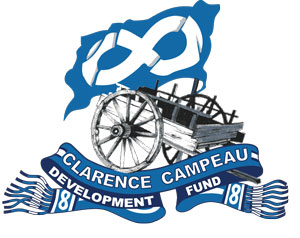
A business loan is designed to protect an entrepreneur’s cash flow and help build or develop their business. The Federal CEBA loan or the Federal Métis Emergency Capital Assistance Program is intended to provide Métis owned businesses negatively impacted by COVID-19 with interest-free term loans and non-repayable contributions to support their immediate working capital and operational needs. Before signing a loan agreement with your financial institution or a Métis Economic Development organization, determine the type of loan being offered to you and understand the terms. One key term to look for: Is the loan unsecured or secured?
Unsecured Loan
An unsecured loan is based solely on the borrower’s creditworthiness and promise to repay and requires no security.
Secured Loan
If a loan is secured, the most common form of security is a General Security Agreement (GSA). A GSA is the most common form of personal property security used in Canada to secure commercial loans. It is an effective way to obtain security over business assets because it represents a blanket lien on many different categories, such as:
- Personal property
- Machinery and equipment
- Accounts receivables
- Intellectual property
- All present and after acquired personal property
The GSA is vast, it is effective, it is complicated, and it is legally acceptable in commercial lending; that is why it should only be reviewed thoroughly by the applicant and his/her lawyer, and loan documents should only be signed in the presence of a lawyer. A GSA could prevent a business from obtaining credit in the future because there are no assets available for the lender to take as security.
For example, should the GSA be used when applying for the $ 40,000 Federal Emergency Stimulus Loan or CEBA. The nature of this loan is to help businesses with fixed monthly payments through a pandemic period that cannot be deferred. These loans are 100% guaranteed by the Federal Government and therefore represent very little risk to the lender. Registering a GSA seems excessive if proper due diligence was done by the lending institution. Most chartered banks and Credit Unions are not taking a GSA as security, but unfortunately some are. In addition, some developmental lenders, and Aboriginal Financial Institutions, (AFI’s) are taking a GSA against the $ 40,000 Stimulus Loan. Shop around before settling with a charted bank, Credit Union, or Aboriginal Financial Institution.
A client needs to decide if taking the Stimulus Loan is worth having a GSA registered against all “Present and After Acquires Assets” or should the applicant pursue other stimulus loans from other lending institutions that do not require a GSA, such as the Clarence Campeau Development Fund.
For further information on this, please contact CCDF at 1-888-657-4870, or visit our website: www.clarencecampeau.com, or email at: info@clarencecampeau.com.
